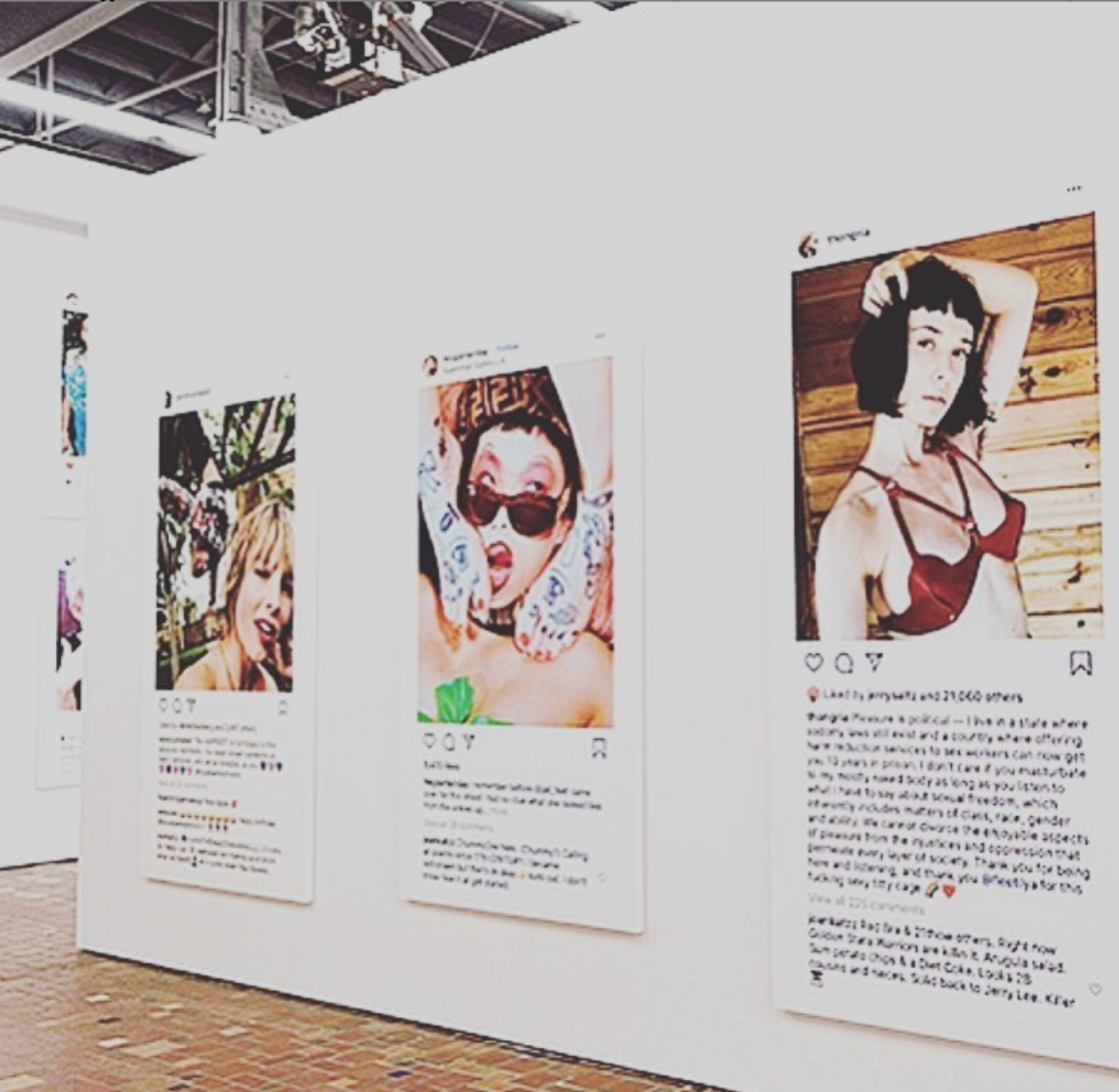MANHATTAN (CN) — Finding that artist Richard Prince "indeed tested the boundary between appropriation art and copyright infringement," a federal judge refused to throw out a pair of long-running copyright suits against Prince for his Instagram-based series “New Portraits.”
U.S. District Judge Sidney Stein signed the consolidated ruling Thursday after Prince had moved for summary judgment in two cases in the Southern District of New York brought by photographers whose original works were used in Prince’s “New Portraits.”
The series consists of screenshots Prince took from Instagram, enlarged and printed inkjet on canvas, with comments added. Prince took some his screenshots from other people's Instagrams, but he also uploaded images that belonged to professional photographers.
Donald Graham brought the earliest of the two lawsuits, accusing Prince of violating the copyright on his 1998 photograph "Rastafarian Smoking A Joint," a close-up shot of a shirtless, Jamaican man toking marijuana. Eric McNatt brought the second suit in 2020, arising from Prince’s appropriation of a portrait of Kim Gordon, a friend of Prince and co-founder of the legendary art-rock institution Sonic Youth.
McNatt’s photograph of Gordon was originally commissioned for Paper Magazine in 2014.
“'Portrait of Rastajay92' and 'Portrait of Kim Gordon' make several modifications which are in the Court's view, both minimal and insufficient to warrant the conclusion that they result in an aesthetic and character different plaintiffs' original photographs,” Judge Stein's opinion states. “Defendants' attempt to cast the images as satire or parody fails, and Prince's stated purpose in creating these portraits has been both inconsistent and has only limited relevance in light of the similarities between the original and the secondary works.”
In the case of "Portrait of Kim Gordon," Prince added a comment: “Kool Thang You Make My Heart Sang You Make Everythang Groovy,” referencing both the 1960s garage rock song “Wild Thing,” made popular by The Troggs and the 1990 Sonic Youth song, sung by Gordon, "Kool Thing."
Prince exhibited a nearly 5-foot-tall print of the Instagram screenshot at Blum & Poe's Tokyo Gallery from around April 3 through May 30, 2015.
In almost every respect, the photographers’ intellectual property theft claims mirror those brought almost a decade ago by Paris-based photographer Patrick Cariou.
In late 2007, the Gagosian Gallery exhibited a series of Prince works based on Cariou's "Yes, Rasta," an out-of-print book documenting the photographer's decadelong trip to Jamaica's remote mountains and villages.
Prince superimposed gas masks, guitars and painted blotches over Cariou's Rastafarian subjects without permission, inspiring a lawsuit a year after his show opened.
In 2013, the New York-based Second Circuit issued a landmark ruling that relaxed the standards for an artist's work to qualify as transformative use.
U.S. Circuit Judge Barrington Parker, who wrote the opinion, found that all but five of the 30 works that Cariou challenged clearly qualified as fair use.
But on Thursday, denying summary summary judgment on the basis of fair use, Judge Stein ruled that Prince failed to transform the original works or imbue any new meaning or message as he had done with the Cariou works.
"Ultimately, this Court concludes that Prince's alterations have merely 'modif[ied] the original[s] without being transformative,'" the judge wrote. "Prince did not use plaintiffs' photographs as raw material to create a collage or nor did he attempt to obscure the images. A reasonable observer would likely identify Prince's alterations as (1) adding the Instagram frame and (2) showcasing his own comments. These modifications certainly do not being to approach the alterations found to be transformative as a matter of law in Cariou and Blanch.”
Judge Stein heard oral arguments in the case three years ago over Skype video conference, as was common at for court proceedings during the coronavirus pandemic in the summer of 2020.
Gordon’s band Sonic Youth used a painting from Prince’s nurse series for its 2004 album, "Sonic Nurse." Gordon also painted the cover for Richard Prince's 2016 record, "Long Song."
Gordon, who studied at the Otis Art Institute in Los Angeles in the late 1970s, also works within the appropriation art practice, including a series called “Twitter Paintings” sourced from the Twitter streams of Richard Prince, coincidentally, along with pulling from tweets from “Girls” producer Jenni Konner and preeminent New York art critic Jerry Saltz, among others.
Subscribe to Closing Arguments
Sign up for new weekly newsletter Closing Arguments to get the latest about ongoing trials, major litigation and hot cases and rulings in courthouses around the U.S. and the world.









